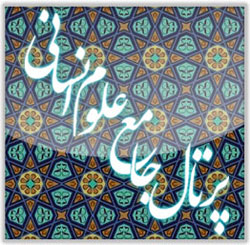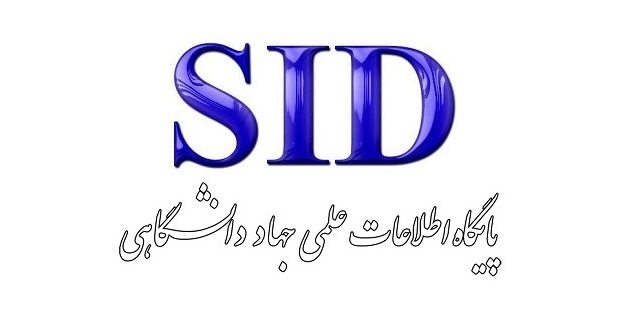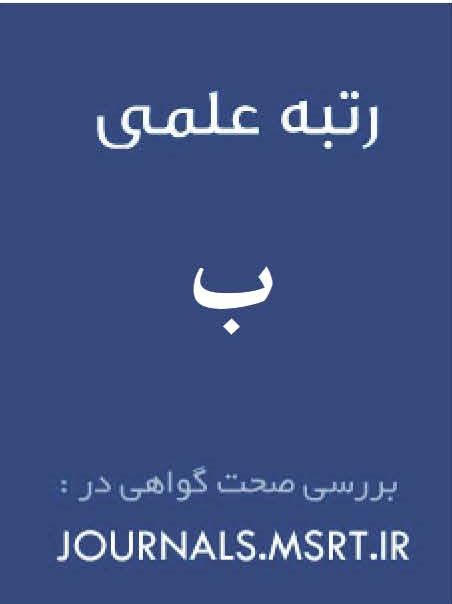About the Journal
The Treasury of Persian Language and Literature is an esteemed, open-access journal dedicated to the study, preservation, and advancement of Persian language and literature. Serving as a valuable platform for scholars, researchers, and academics, the journal explores a diverse range of topics within Persian literary studies, including classical, medieval, and contemporary literature, as well as linguistic studies that examine the nuances of the Persian language. Committed to rigorous scholarly standards, the Treasury of Persian Language and Literature operates under a double-blind peer-review process, ensuring impartiality and the highest levels of academic integrity in the selection of articles. Our journal welcomes contributions in various formats, including original research articles, critical essays, reviews, and interpretive studies, and invites global and interdisciplinary approaches to further enrich the field of Persian studies.
Aims and Scope
The primary mission of the Treasury of Persian Language and Literature is to foster an enriched understanding of Persian linguistic and literary heritage. We aim to:
- Advance knowledge on the structure, evolution, and contemporary uses of the Persian language.
- Encourage critical analyses of Persian literature from diverse historical periods, exploring themes, stylistic developments, and influences on and from other literary traditions.
- Support the examination of Persian literature in global and comparative contexts, encouraging cross-cultural and interdisciplinary approaches.
- Provide an academic space for emerging scholars and established experts to share findings, debate theories, and propose new perspectives on Persian literary and linguistic topics.
Our journal is committed to bridging gaps between Persian literature and linguistics, cultivating a vibrant scholarly community, and elevating the discourse surrounding Persian cultural studies in an increasingly interconnected world.
Open Access Statement
The Treasury of Persian Language and Literature proudly operates as an open-access journal. We believe that the widespread dissemination of knowledge and research should not be hindered by financial or access barriers. All articles are made freely accessible immediately upon publication, promoting knowledge-sharing and enabling researchers, students, and enthusiasts worldwide to benefit from our content without restriction. This open-access policy facilitates greater visibility for authors and fosters an inclusive research environment, aligning with our vision to advance Persian language and literary studies across diverse global audiences.
Copyright and License
Authors who publish with the Treasury of Persian Language and Literature retain full copyright over their work, providing them complete control over the distribution and adaptation of their research. The journal employs a Creative Commons Attribution-NonCommercial 4.0 International (CC BY-NC 4.0) license, which allows others to read, download, and share published work, provided it is not used for commercial purposes and appropriate credit is given to the authors. This policy ensures that while the dissemination of research is encouraged, authors’ intellectual rights remain protected.
Plagiarism Detection
Academic integrity is of paramount importance to the Treasury of Persian Language and Literature, and we uphold strict standards to prevent academic misconduct. All submissions are screened for originality using the iThenticate plagiarism detection software, a leading tool in the field. We strive to maintain a plagiarism-free publication environment and, as such, will reject any manuscript found to contain unattributed text or ideas from other sources. By upholding these standards, we seek to contribute to a reliable and credible scholarly record in Persian studies.
Article Processing Charges (APCs)
To sustain our open-access model and cover the various costs associated with the publication process, including editorial management, peer-review, formatting, and digital preservation, an Article Processing Charge (APC) of 1,500,000 Tomans is applied to accepted manuscripts. This fee supports our commitment to providing high-quality, freely accessible scholarly content. Financial constraints should not be a barrier to publication, and as such, we offer waivers or discounts under special circumstances, particularly for authors with demonstrated financial need or from low-income regions.
Peer-Review Process
The Treasury of Persian Language and Literature employs a rigorous double-blind peer-review process, where both the reviewers’ and authors’ identities remain anonymous to ensure impartiality. Each submitted article is initially reviewed by the editorial board to assess its relevance, originality, and adherence to journal standards. Upon passing this initial evaluation, the article is assigned to two or three expert reviewers in the field. The reviewers are responsible for providing detailed feedback on the manuscript’s scholarly contribution, methodology, and coherence. Authors may be asked to revise their manuscripts based on reviewer feedback, ensuring that only articles of the highest academic quality are published. The entire review process is designed to be transparent, respectful, and constructive, with the aim of enhancing the quality and clarity of each published work.
Archiving and Repository Policies
To ensure long-term accessibility and preservation of our published content, the Treasury of Persian Language and Literature supports multiple archiving and repository strategies:
- Self-Archiving: Authors are permitted to archive the final published version of their work in institutional repositories, personal websites, or other platforms, provided they adhere to our open-access and licensing policies.
- Indexing in Prominent Databases: To enhance discoverability and reach, the journal is indexed in reputable databases such as Magiran, SID (Scientific Information Database), Noormags, Civilica, and Ensani. These platforms provide extensive access to Persian research literature, expanding the visibility and impact of our authors' work.
Through these policies, the Treasury of Persian Language and Literature remains committed to ensuring that scholarly content is preserved, accessible, and integrated within the broader academic community.








